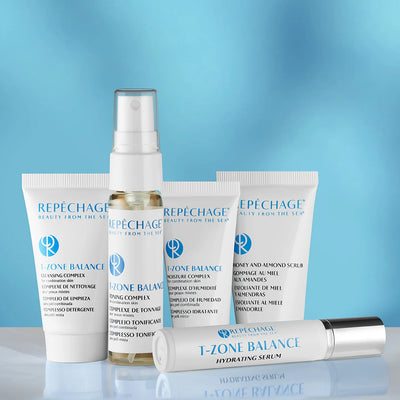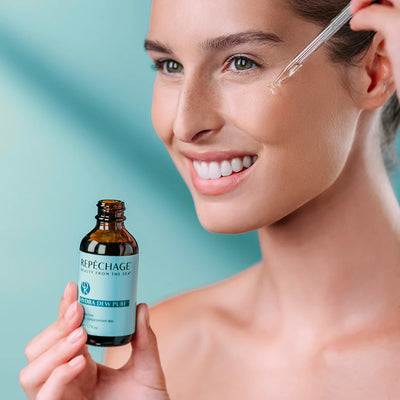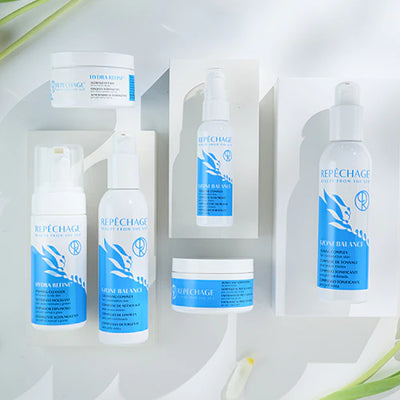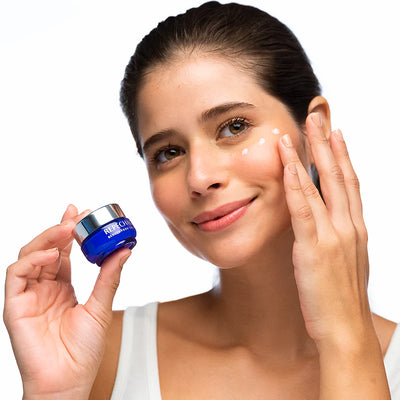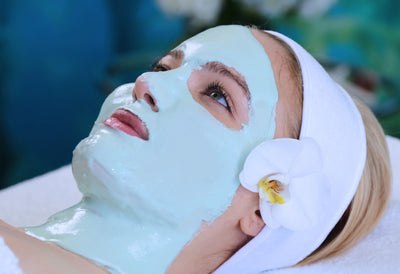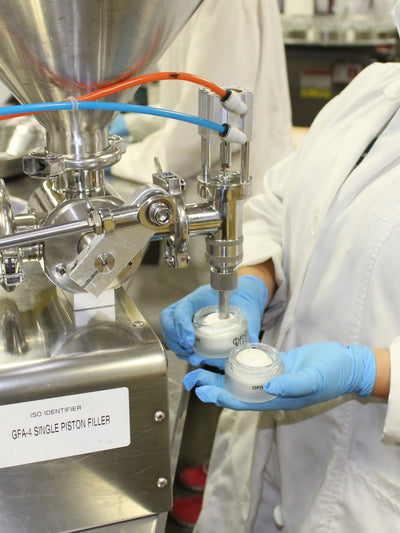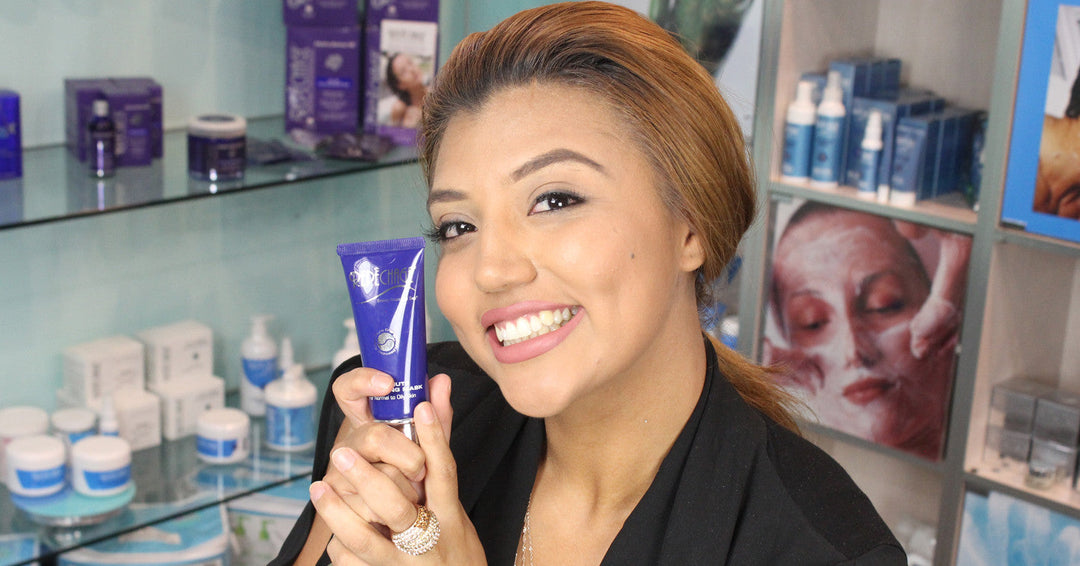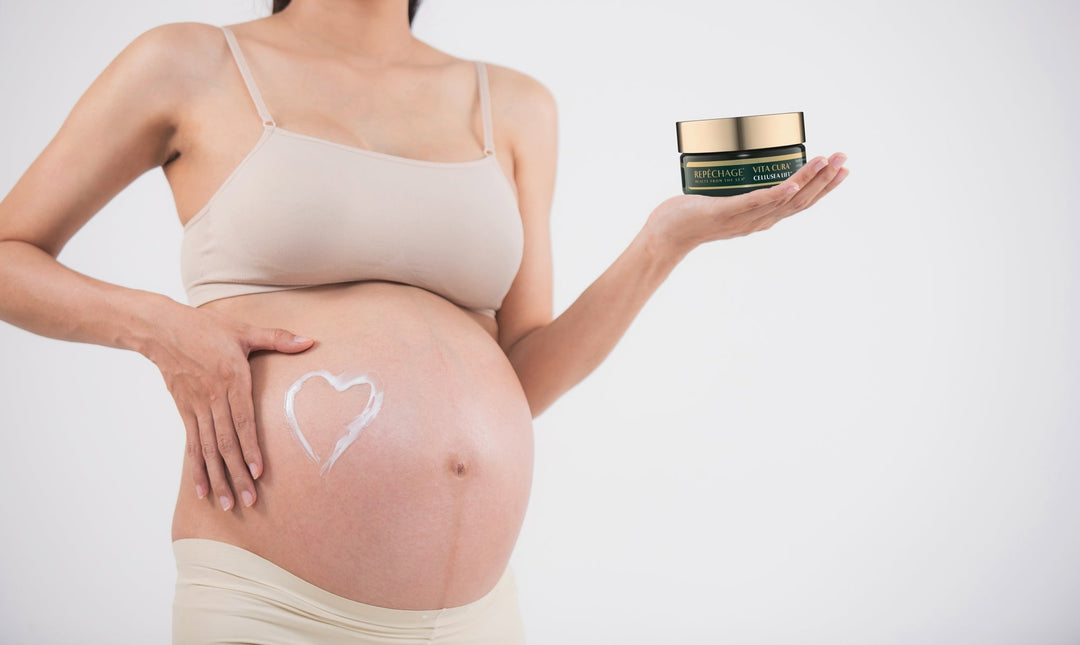Listen to Your Gut: The Importance of Gut Health for Glowing Skin
When it comes to creating glowing skin, probably the most important aspect is to understand the connection between what is happening inside your body and how it can affect your outward appearance. One area that experts are looking at lately is the connection between the stomach and the way digestion problems can manifest on your skin.

Some experts refer to the study of stomach problems simply as “gut health,” and they are finding that it can have a tremendous influence on your body and your skin overall.
Research has found that there is an “intimate, bidirectional connection between the gut and skin. When the skin cell turnover functions properly, the structure of the skin serves as an effective skin barrier with the ability to limit evaporation, preserve skin moisture, and protect from invasion by foreign organisms and substances.” 1 Through its influence of signaling pathways to coordinate bodily processes, the microbiome of the gut impacts overall health and the skin.
So, want to know exactly what “gut health” is? What exactly is a “leaky gut”? The difference between a pro-biotic and pre-biotic? And, what this has to do with your skin?
This is a topic that is very close to the hearts of two leaders in the health/beauty field.
Lydia Sarfati, CEO and Founder of Repêchage Skin Care, pioneers of sustainably-harvested, seaweed based skin care, and Natalya Fazylova, DNP of ReBalance Integrative Medicine and Anti-Aging Center in NYC recently held an online forum on the topic, and have this information to share.


What is gut health?
According to Dr. Fazylova, our gastro-intestinal tract is connected to everything happening in our body. Everything we eat has to go through the gastro-intestinal (GI) tract to be digested and metabolized, and it needs to be working properly so that we get the benefits and nutrients from the food. But it also has bearing on other functions in the body. If your GI is not functioning properly, it can lead to inflammation, to lack of proper nutrient absorption, can affect the hormonal system, which in turn can affect mood. All of these problems can then manifest on the skin in the form of eczema, psoriasis, rosacea and other skin problems. If you address the gut health issues, it usually can result in these skin issues lessening or going away entirely.
What is “leaky gut”?
When we absorb the proper nutrients from our food and we eliminate toxins, our GI is functioning properly. If there is damage to our intestinal lining from excessive alcohol, smoking and chemicals, it can make the lining of our digestive tract thinner and more permeable, “leaking” out toxins into our bodies. What you might see: Eczema, psoriasis, rosacea, weight gain, fatigue and bloating.

What is the different between prebiotics and probiotics?
According to Dr. Fazylova, probiotics are something you take that already has bacteria in it. For example, if someone just took antibiotics, you need a probiotic that is strong and has a lot of different bacteria to help replace all the “good” bacteria in your body, especially in the digestive system. If you are talking about preventative probiotics, such as you would if you were counteracting stress, you would not take one that is as high.
Prebiotics help our body to produce the bacteria your body needs, working with your own system to produce the “good” bacteria that exists both inside and outside.

“When you are talking about skin and bacteria, your skin has lots of residents that don’t pay rent,” says Sarfati. “The skin is never sterile, but it has a marvelous barrier, a shield of sebum and sweat that creates a pH balance that is slightly acidic to prevent bacteria from going into the skin, But, there is also good flora that helps to maintain this balance.”
Sarfati cautions that when you are itching or picking the skin, you are removing the barrier, or creating an opening for bacteria to get in and cause an infection, pimples and eruptions.
How to maintain gut health and healthy skin:
Dr. Favylova finds that if someone presents skin concerns such as eczema, rosacea or acne, doing a medical exam and checking for GI issues is integral to having a real impact on the condition of the skin. “When you combine the two, people usually get rid of their acne in four weeks to five weeks, that’s how powerful when you are taking care of it from the inside out.”
According to Lydia Sarfati, improper GI function may be leading to these skin problems, in addition to contact dermatitis, and breakouts around the mouth. Stress can further exacerbate the problem. When you eat and then stress about what you’ve eaten (chocolate, for example) your body releases cortisol, which can increase inflammation.
In the salon, the esthetician may perform treatments that help detoxify and deep cleanse the skin. For at home, cleansers, serums and masks that contain ingredients that help to calm the appearance of redness and irritation, such as the Repêchage®

Hydra 4® Cleanser, Red-Out® Cleanser, Red-Out® Serum, and Red-Out® Soothing Sheet Mask, These contain micro silver and Mirabalis Jalapa, ingredients that help to restore the appearance of the skin barrier.
To help lessen the appearance of breakouts, the Hydra Medic® Collection for Oily, Problem Skin is the answer for oily skin at any age. This combines seaweed extracts with an antioxidant tea blend, sea muds, and herbal extracts that gently deep cleanse the skin to help reduce oily skin while leaving skin feeling soft and smooth without over-drying.
For dry, compromised skin, and to help strengthen the skin’s natural moisture barrier, use products that contain seaweed, Mastic Oil, Camelia Japonica Seed Oil and Hyaluronic Acid such as the new Hydra Dew Pure™ Collection for Dry, Compromised Skin.
How do you approach your beauty regime from the inside out? Let us know in the comments!


